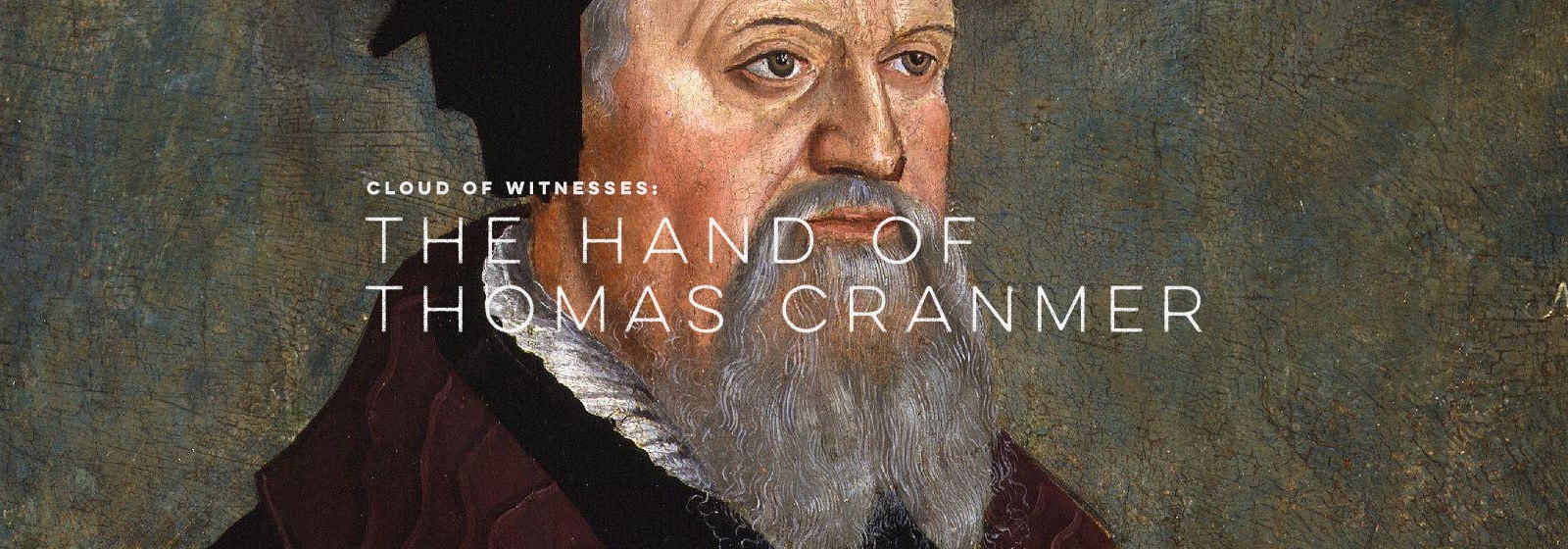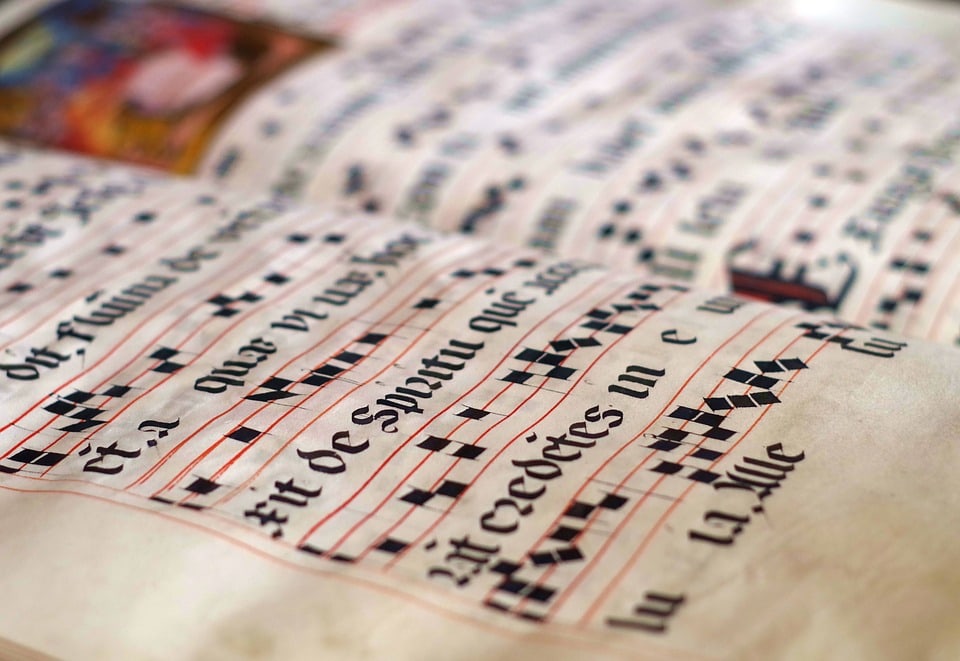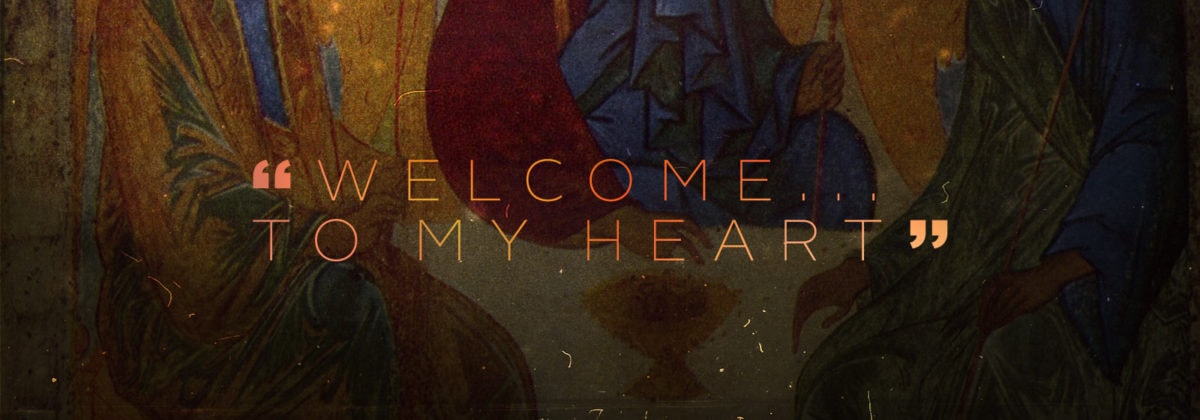This Sunday we start a new series at St. Peter’s Fireside called Cloud Of Witnesses. We are spending the next nine weeks exploring Hebrews 11, which is commonly called “The Hall Of Faith.” It’s a record of those who demonstrated faith in God in the Old Testament — people like Abraham and Sarah, Isaac and Jacob, Rahab and Moses. The best way to see what faith looks like, after all, is to look at those who have lived by it. Because faith isn’t just believing the right things, but living in light of what we believe. However, despite the fact that this chapter in Hebrews celebrates the faith of this eclectic, misfit and strange group for their faith in God, it ends with the declaration that their faith was not their own. We don’t celebrate these people because of their own ability to manufacture faith, but because of what God has done in and through them.
We’ve decided to follow the theme of our sermon series on our blog. Over the next nine weeks, each of our authors will be highlighting some of their heroes of faith. Together we will be looking at Christians throughout the ages who have exemplified faith.
I’m sure you have come across someone who put words to things you haven’t been able to articulate. You know what I mean! People who have led us to have epiphanies that sink deep into our souls and hearts. Like a good Anglican, I’m going to kick off our series with Thomas Cranmer. He is the man who has led me to more ‘Ah-ha!’ moments than Dairy Queen has led me to Blizzard-inspired-comas.
Now, you may be perplexed.
You know all about Dairy Queen, but you’re thinking, “Thomas who? Surely this man is delicious!” And you’re right! He is. But in an altogether different way than a Blizzard. If you’ve grown up in a predominantly English speaking society then you have undoubtedly encountered Thomas Cranmer without knowing it. Your heart and mind has likely been stirred and satisfied by the work of his hand many times.
Have you ever heard “Speak now or forever hold your peace” or “Till death us do part” at a wedding? Then you’ve cozied up beside Cranmer. Have you heard the somber words “Earth to earth, ashes to ashes, dust to dust” at a funeral? Then you’ve brushed shoulders with Cranmer. These popular phrases find their origins in the Book Of Common Prayer, a work of Thomas Cranmer’s hand.
Cranmer may not be as well known as his contemporaries Martin Luther or John Calvin, but his influence and reach is just as great as theirs. Cranmer was the Archbishop of Canterbury in the mid 16th Century, and the spearhead of the English Reformation. There is so much that can be highlighted about Cranmer’s life. I want to focus, however, on what I consider to be Cranmer’s most lasting contribution: his reformation of worship.
If you’ve grown up in a predominantly English speaking society then you have undoubtedly encountered Thomas Cranmer without knowing it.
Thomas Cranmer carried the conviction that worship should be common. The average person should be able to understand it and participate in it meaningfully. Hence the title “Book of Common Prayer.” In the 39 Articles, Cranmer wrote, “It is plainly repugnant to the Word of God and to the custom of the early church for public prayer or the administration of the sacraments in a language not understood by the people.” This may not seem like a big deal to us today, but that’s only because we’ve benefited from 450+ years of Cranmer and his contemporaries’ conviction and the foundation they laid. Prior to their efforts, the Catholic Church conducted their entire mass in Latin. It was just as foreign to the people then as it would be to most of us today. And Cranmer believed if worship couldn’t be understood by the people then it could hardly be considered to be leading people to worship God.
Worship services at the turn of the 15th century had also become excessively complicated and full of convoluted rules. Because of this, Cranmer also sought to simply worship for the sake of accessibility for the average person. Yet in doing so, he was not content to throw away church tradition. He looked to the patristic Father’s for instruction, and critically evaluated the history of liturgy and worship. He then held together what proved to be Biblically faithful, as well as tried and true throughout history. The Book of Common Prayer displays his remarkable ability to take Scripture and the best forms of historical worship and weave them seamlessly together into services and prayers that take our hearts right to God without any distraction.
It is obvious that Cranmer understood the implications of Christ’s incarnation. Jesus identified with humanity in the most profound way: by becoming one of us. He embodied human life, walked through the dirt of the earth, touched what we touch, and spoke with his tongue in an earthly language. It was all for the sake of revealing God’s plan of salvation to the world. Cranmer grasped this and cherished it. And through the legacy of his work he continues to point us back to the profound beauty of Jesus’ incarnation.
And yet, for all of Cranmer’s brilliance and many accomplishments, he was far from perfect. Despite his mastery of the English language, despite his revolutionary theological contributions, and despite bringing reform to the way the church throughout England worshiped, Cranmer went on to declare it all a mistake. What!? That’s like saying the DQ Blizzard was a mistake.
What happened?
Cranmer was imprisoned in 1553 for his views and work. There were enormous pressures placed upon him to recant. For a long time Cranmer held firm. He didn’t recant. But in 1554 he eventually did. He said it was all wrong, that he was misled, that it was all a mistake.
Cranmer died in 1556.
But fortunately that’s not the end of his story.
Before his public execution he did something profound. Cranmer was expected to read a public statement of his recantation. But instead of publicly recanting he made a public confession of his sin of recanting. I love it! At the end of recanting his recantation, Cranmer said, “And forasmuch as my hand offended in writing contrary to my heart, therefore my hand shall first be punished, for, if I may come to the fire, it shall be first burned.” When he was brought to the stake to be burned alive, he put his right hand in the fire first. And, as he was burning, he held up his right hand and said, “This unworthy hand! Lord Jesus, receive my spirit!”
Cranmer’s death was cryptic yet beautiful.
The poetry that ran through his heart, mind and soul that poured out through his hand also expressed itself powerfully in his death. The hand that reformed worship so deeply that we still benefit from it today, and the hand that betrayed his legacy of work is the same hand he surrendered to Christ in his death.
Yes, I am grateful for the hand of Thomas Cranmer.




